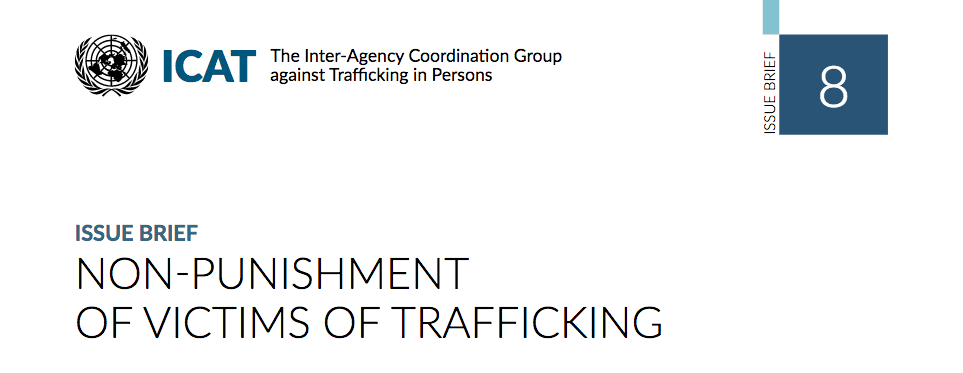
Non-Punishment of Victims of Trafficking
Victims of trafficking are subjected to exploitation in various ways. Sometimes, as a result of their victimization, they engage in illegal conduct. Common examples include involvement in the sex trade, involvement in drug production or trafficking, petty crime, possession or the use of fraudulent documents or entering another country in a manner that does not comply with its immigration laws. In many cases, victims are forced or otherwise compelled by traffickers to commit these crimes or other illegal conduct. This fact is then used by traffickers as a means of maintaining further control over their victims. In some cases, a victim may be unaware that they have broken the law.
Over many years, anti-trafficking, human rights and criminal justice practitioners have raised concerns that arresting, charging, detaining, prosecuting or punishing trafficking victims who commit crimes in connection with their victimization would be unjust. They have also noted that there are insufficient measures in place to protect victims and guide decision makers on how to address such cases. As a result, the non-punishment principle has emerged. It can be generally stated as: trafficked persons should not be subject to arrest, charge, detention, prosecution, or be penalized or otherwise punished for illegal conduct that they committed as a direct consequence of being trafficked.
This issue brief explores the non-punishment principle and identifies key considerations to inform the development of measures to better support its implementation.
Read the full brief here.
